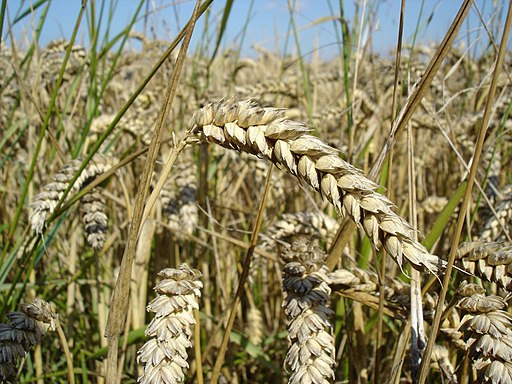December
11
Ep. 0087: Grain and the State
Join CJ as he discusses:
- How people lived in the Paleolithic Era, which actually encompasses the vast majority of human existence
- The Neolithic Revolution and the coming of agriculture
- The domestication of grains and their rise to dominate global food production
- The rise of “civilization,” including its downsides
- The characteristics of grains which make them the preferred food crops of states
- Alternatives to sedentary, fixed-field, grain-dominated agriculture, which states tend to discourage
- A few thoughts and observations about grains and states in the modern world
Please consider supporting the show via Patreon!
External Links
- A lecture by James C. Scott entitled, “How Grains Domesticated Us”, which is the one from which I played an excerpt and to which I referred several times in the show
- Another great James C. Scott lecture, “The Art of Not Being Governed” which discusses a lot of similar and related topics (I also highly recommend Scott’s book The Art of Not Being Governed — see below)
Wheat photo attribution: By User:Bluemoose (Own work) [GFDL (http://www.gnu.org/copyleft/fdl.html), CC-BY-SA-3.0 (http://creativecommons.org/licenses/by-sa/3.0/) or CC BY-SA 2.5-2.0-1.0 (http://creativecommons.org/licenses/by-sa/2.5-2.0-1.0)], via Wikimedia Commons

I have Scott’s book but never managed to get very far in it. I think his idea is very important. It is one of those things that seems painfully obvious in retrospect, but it never even occurred to me to think about it before I listened to your podcast. When I read the title, I thought “sounds like a snore-fest,” but I can’t think of a podcast that has given me such a slap in the face wake-up call.
How do we respond to this strategy? The obvious thing is to try to hide wealth, but how? One way is to take ordinary legible wealth and try to hide it, remove it from the surveillance system, out of the view of cameras and barcode readers and Internet-enabled sensors of all kinds. This is one kind of challenge, sort of an arms race where the enemy has a head start and a bigger budget.
The ideal counterstrategy would remove the legibility from the wealth, so that you could wave it in a state agent’s face and he would complain, “Get that out of my face, I’ve come here to confiscate your wealth.” That is a different sort of challenge. The only remotely pertinent example I can think of was the tendency of the Jews to invest in human capital as a response to persecution. State agents have great difficulty confiscating expertise and knowledge.
If we took this to the ultimate, we would redefine wealth entirely. The agents of the state bend us to their will by threats of prison, poverty and marginalization. If we can learn to thrive under such conditions, they become helpless. Of course, that challenge dwarfs the other two!
Glad you enjoyed the episode, Dave. Thanks for your response. I think your comments are spot-on. I particularly like your point about human capital being a wonderfully non-legible form of wealth.
I think food production for one’s own household (if you grow $1,000 of food & eat it yourself, you’re not taxed on that as income), agorism, barter, cryptocurrencies, other peer-to-peer technologies, the dark web, and even going nomad all have potential as strategies to opt out of the standard systems. There are other options as well. Some may work better than others, and obviously not all tactics are equally suited to all individuals given their preferences, circumstances, resources, etc. But I think there are lots of potential ways to try to live in a high-tech, virtual Zomia as much as one is willing & able to do so.
The book, Sex at Dawn, does a good job refuting Pinker’s (he’s where this idea is propagated from) idea that hunter gatherers suffered more violent deaths than current people. It’s a book every anarchist, interested in our paleo roots and behaviors, should read.
Thanks Joe, I’ve not read Sex at Dawn. Will have to add it to my list. (Have not read Pinker on the subject either.)
What I have read on paleolithic peoples so far offers differing interpretations of how violent they were or weren’t relative to agricultural people. I’m the first to admit it’s not my personal field of expertise.
Nassim Taleb criticizes Pinker from a different viewpoint in his book Antifragile. Sort of a statistical thing, modernism attempts to make society safer and more predictable, but inadvertently makes it more fragile. So the probability that I will get mugged today generally keeps getting lower, but the small probability that some catastrophic event will exterminate all of humanity gets slightly larger.
Pingback: Lisa DeLasho: Voluntaryist, Homeschooler, Founder of Nutritional Anarchy | Peaceful Anarchism
Pingback: John Moody: Food Freedom Activist and Executive Director of Farm To Consumer Legal Defense Fund | Peaceful Anarchism
Pingback: Food Freedom From The Monsanto-Government Complex